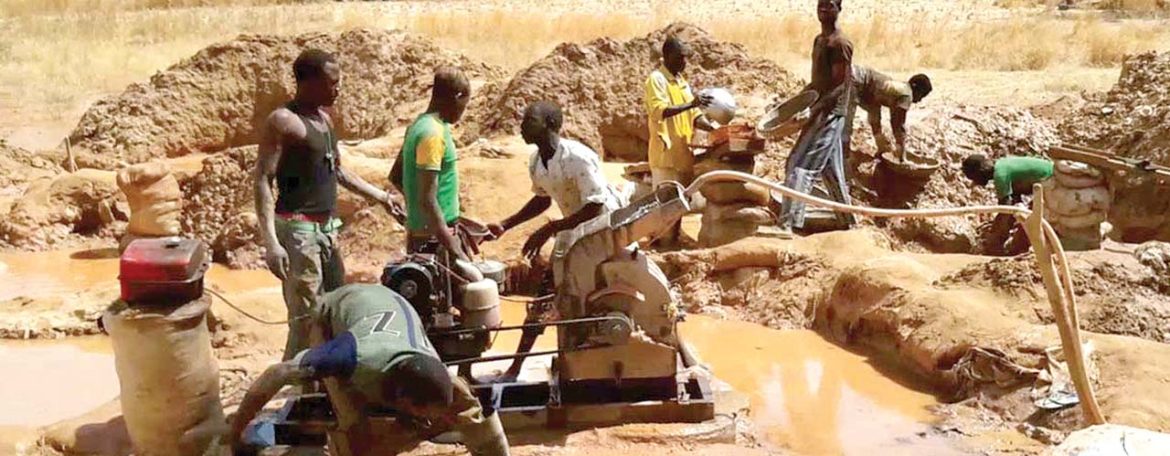This article discusses the Nigerian Mining business, its current state in the country, the challenges it’s facing and future prospects.
MINING IN NIGERIA
The mining of minerals in Nigeria accounts for only 0.3% of its gross domestic product, due to the influence of its vast oil resources. The domestic mining industry is underdeveloped, leading to Nigeria having to import minerals that it could produce domestically, such as salt or iron ore.
The rights to ownership of mineral resources is held by the Federal Government of Nigeria, which grants titles to organizations to explore, mine, and sell mineral resources. Organized mining began in 1903, when the Mineral Survey of the Northern Protectorates was created by the British colonial government.
A year later, the Mineral Survey of the Southern Protectorates was founded. By the 1940s, Nigeria was a major producer of tin, columbite, and coal. The discovery of oil in 1956 hurt the mineral extraction industries, as government and industry both began to focus on this new resource.
READ: How to start Oil and Gas Business, Steps & Ideas
Mining in Nigeria has the potential to significantly contribute to the country’s economic development. However, it faces numerous challenges and obstacles that have hindered its growth and potential. This analysis will delve into the current state of the mining industry in Nigeria, its challenges, opportunities, and prospects.
CURRENT STATE OF MINING IN NIGERIA
The mining industry in Nigeria has historically been dominated by the oil and gas sector, leaving other mineral resources largely untapped. Nevertheless, Nigeria is rich in mineral resources such as coal, limestone, tin, gold, and tantalite, among others.
Artisanal and small-scale mining (ASM) activities have been prevalent in many parts of the country, particularly in the rural areas, contributing significantly to the sector’s output.
CHALLENGES FACING MINING IN NIGERIA
Regulatory and legal challenges: Mining in Nigeria has struggled with a complex regulatory framework and legal issues. Inconsistent policies, overlapping responsibilities between federal and state governments, and unclear land tenure systems have deterred investors and hindered the industry’s growth
Infrastructure deficit: Inadequate infrastructure, including transportation, power supply, and access to water, has been a significant challenge. These deficiencies increase operational costs and make mining less attractive for potential investors.
Read: Nigerian Mining Business Opportunity
Security concerns: Many mining regions in Nigeria face security challenges, including illegal mining activities, community conflicts, and in some cases, armed banditry. This has deterred investments and created an unstable operating environment.
Environmental and social concerns: The environmental and social impacts of mining operations, especially in ASM, have been a cause for concern. Poor mining practices, such as unregulated mercury use and deforestation, have negative consequences on local communities and ecosystems.
Limited access to finance: Access to finance remains a significant hurdle for both small-scale and large-scale mining in Nigeria. Banks are often hesitant to provide loans to the sector due to the perceived risks.
OPPORTUNITIES FOR GROWTH
Diversification of the economy: Mining in Nigeria presents an opportunity for Nigeria to diversify its economy away from over-dependence on oil and gas revenues. Developing this sector can create jobs and reduce vulnerability to fluctuations in oil prices.
Resource endowment: Nigeria’s vast mineral resources provide a solid foundation for economic growth if effectively harnessed. There is potential for exportation of minerals to generate foreign exchange and boost the country’s balance of payments.
Investment opportunities: The government has taken steps to attract investments by revising policies and creating incentives for investors. This includes tax holidays, duty-free importation of mining equipment, and a one-stop-shop for mining license processing.
Read: NSITF Certificate Registration
Local content development: Developing local content in the mining industry can promote technology transfer, job creation, and skill development among Nigerians.
FUTURE PROSPECTS
To unlock the full potential of the mining industry in Nigeria, several key actions are necessary:
Policy and regulatory reforms: The government should continue efforts to streamline and clarify regulations, ensuring consistency and transparency. Additionally, addressing land tenure issues and providing clear guidelines for community engagement are crucial.
Investment in infrastructure: The government should prioritize infrastructure development in mining regions, including roads, power supply, and water access. Public-private partnerships can help fund these projects.
Security enhancement: Enhancing security in mining regions is vital to attract investors and ensure the safety of workers and communities. Collaborative efforts with security agencies and local communities can help address this challenge.
Environmental and social responsibility: Promoting responsible mining practices and enforcing environmental regulations can mitigate the negative impacts of mining on communities and ecosystems.
Access to finance: The government should collaborate with financial institutions to create tailored financial products for the mining sector, making it easier for businesses to access capital.
In Conclusion, Mining in Nigeria has immense potential to contribute to economic growth and diversification. However, it faces significant challenges that require concerted efforts from the government, industry stakeholders, and the international community. With the right policies, investments, and responsible practices, Nigeria can harness its mineral wealth for sustainable development and prosperity.

